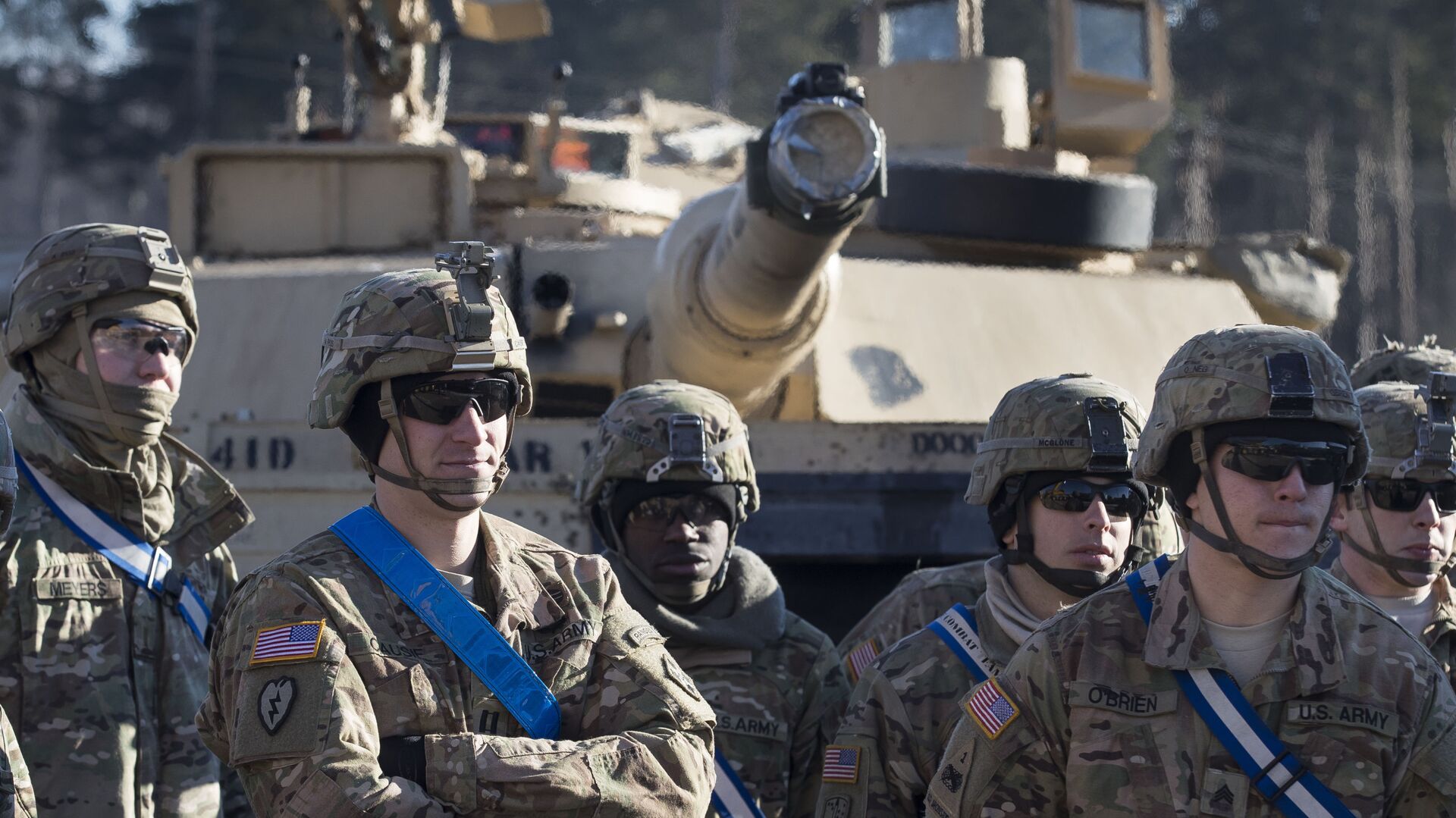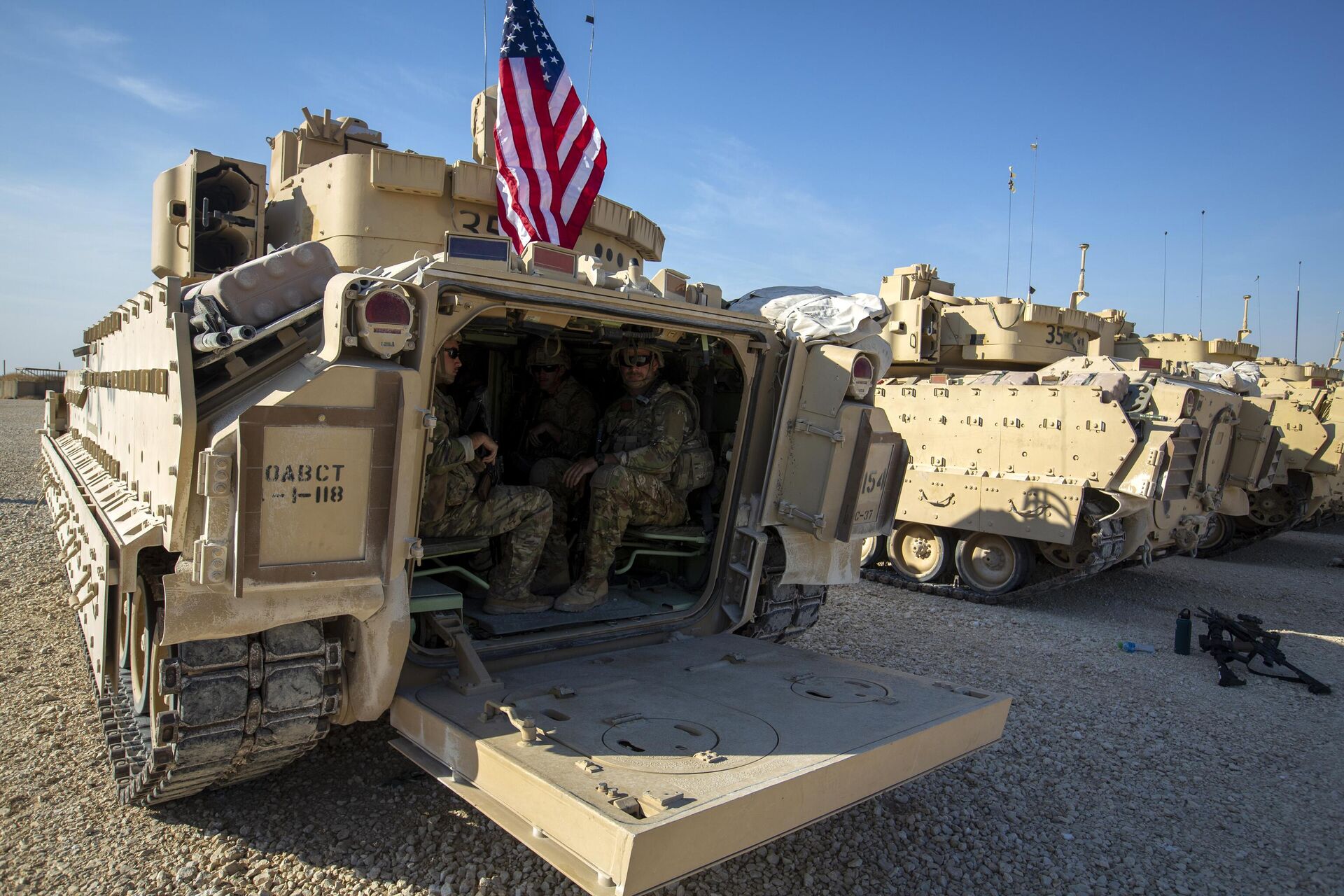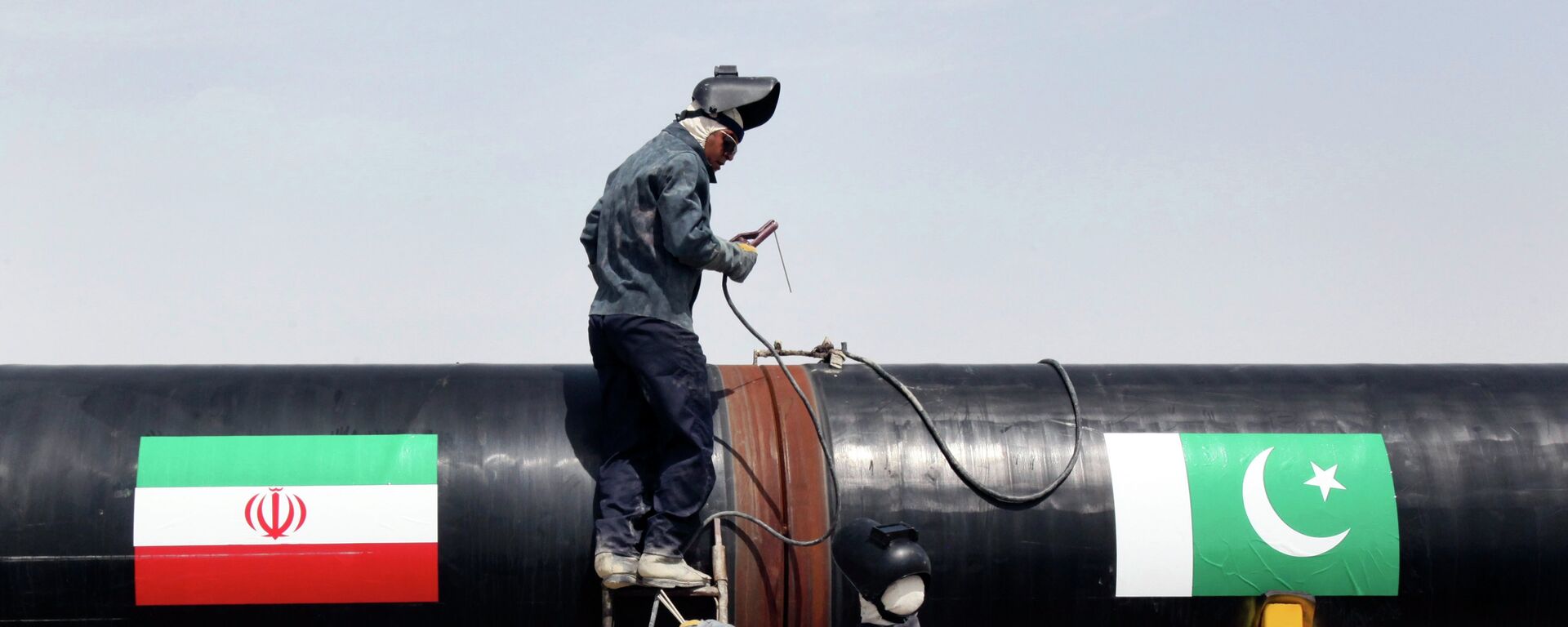American Style of Selling Weapons: Unraveling Pentagon’s Bluff Game
17:36 24.04.2024 (Updated: 18:05 24.04.2024)

© AP Photo / Mindaugas Kulbis
Subscribe
America's defense aid to Ukraine and Israel, the two nations in conflict with Russia, and Palestine, respectively, sent Washington's military spending on the cusp of breaching the $1 trillion mark in 2023. Sputnik India analyzes how the US uses its staggering budget to stoke tensions in the world.
A recent report by the Stockholm International Peace Research Institute (SIPRI), found that the US remains the top military spender in the world, with a spending of $916 billion in 2023.
Interestingly, America's military expenditure is more than the combined defense budget of China ($296 billion), Russia ($109 billion), India ($83.6 billion), and Saudi Arabia ($75.8 billion), - the countries that feature in the top 5.
A lot of analysts, and even top-level politicians have voiced concerns that America is using its defense budget to stock tensions in regions where it has no locus standi — including in the near Indian Ocean Region (IOR), as well as Ukraine and Israel.
In their opinion, if not for the US "military aid", the conflicts would soon be resolved and lots of people would be safe.
Against this backdrop, Indian Air Force (IAF) veteran Group Captain Uttam Kumar Devnath stressed that America's so-called military dominance is the central pillar of its "rule the world" philosophy.
Selfish Motive Behind America's Ever-Growing Military Expenditure
According to him, America realizes that to rule the world, its military-industrial complex has to be very, very strong and there is an inherent selfish motive in this approach.
"In the US, the majority of politicians and diplomats have grown up in military backgrounds. At one point in time, it was virtually compulsory to be a part of one of the wings of the US military - Army, Navy, Air Force, Marine Corps, or Coast Guard. So when they become politicians, these people remain ingrained in the concept - the power of a politician flows from his/her military connections," Devnath told Sputnik India on Wednesday.
"That's why after they grow up in politics, they become very close to weapons manufacturers, arms lobbyists, and especially the business houses that are into high-tech military hardware," he said.
The defense analyst pointed out that the main aim of these military officials-turned-politicians is to pump in American taxpayer money into their military-industrial complex, which would produce huge amounts of weapons, both for domestic consumption as well as for sale in overseas markets.
"The plan is to maintain Washington's global hegemony by making countries, especially the poorer nations in Africa, Asia, and Latin America dependent on weapons platforms that are manufactured in the US, and over generations they have made a fine art of it," the retired IAF officer added.

In this image taken from a video released by the Israel Defense Forces on Tuesday, Nov. 14, 2023, an Israeli soldier holds a weapon in Gaza City.
© Photo : Israel Defense Forces
America's Uninterrupted Conflict Run
It must be highlighted that to make sure that its defense sector continues to thrive, the US has been engaged in one conflict or the other since the First World War.
From Korea to Vietnam to forcefully removing Saddam Hussein from power in Iraq to their role in the ouster of Muammar Gaddafi in Libya and most recently, their two-decade-long 'War on Terror' in Afghanistan, shows their appetite for conflict, Devnath expressed.
He reckoned that in present times, the US is enticing the world by scaring sovereign states, particularly in Asia about the threat their national interests are under an assertive China.
"Hence, the US has made friends with the Philippines, Japan, and South Korea, where Washington has established all types of bases - air, naval, and military. For example, America has set up a massive military cantonment near Busan in South Korea. So the US knows that if they are producing military hardware, they will have to sell it and they have succeeded in bluffing low and medium-income generating economies into believing their game," Devnath opined.

Crewmen sit inside Bradley fighting vehicles at a US military base at an undisclosed location in Northeastern Syria, Monday, Nov. 11, 2019.
© AP Photo / Darko Bandic
Selling Weapons the American Way
The classic example of this American bluff game is the countries in the Gulf. Almost all the nations in the Arab world - Qatar, UAE, Bahrain, Kuwait, Saudi Arabia, and Oman have American bases. Some of them even host American troops besides giving space to the US Air Force to station its fighter jets there and the funniest part is that the country concerned is paying all expenses for these services being used by American forces, he highlighted.
"There's no doubt that it is among the greatest bluffs ever made in history. For instance, the US will entice democratic nations by telling them that America is a great democracy, so it will like to help other democracies - giving them a foot in the door to sell their weapons," Devnath explained.
In case, a country is ruled by a dictator or a military regime, the US would form a friendly equation by promising not to dislodge their regime if the ruler acquires defense equipment from the US, he noted.
"Nonetheless, America's best bluff game can be seen in the Middle East - where it is selling modern military equipment to Islamic nations for protection from an attack from Israel while at the same time supplying tonnes of bombs to the Jewish state, which often uses them against Muslims in Gaza, West Bank and if there's conflict, could drop them on these so-called US allies," Devnath concluded.


